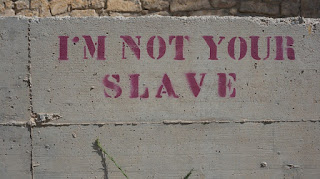 |
"I went to the pool and worked hard, swimming 25 laps."
"The book I'm reading over the weekend is a self-help one. I'm learning to manage people better."
For many of us, relaxation is a dirty word. Everything has to be 'worthy'. Even kids can't just have fun; they need to have Edutainment.
Anxiety and depression rates are going through the roof because we're switched on all the time. Our relaxing is clandestine, as if it's wrong or wicked to just hang out and enjoy ourselves.
"I feel guilty just watching Netflix."
"I can't go out and sit in the park. I need to do something like count my steps."
"I can't switch off my phone, even when on weekends and holidays."
If that is you, it's time to stop and think. You know you will drive yourself into burnout by working 24/7 - or 996 as they say in China. You need downtime to be a mentally healthy person.
So, where does all this push to be working all the time come from?
Part of the problem is that the message, "You must be successful" is pushed on us from young. We're trained to aspire to luxury clothes, new cars, holidays abroad and lots of fancy stuff. But it goes deeper than that. I think that for many people, labour itself is considered inherently worthy.
In terms of my own roots, Scottish-Dutch, I suspect the rot set in around the 1500s when some religious scholars started pushing the idea that hard work and plain living were symbols of being a good person, definitely destined for heaven. This Protestant Work Ethic became a big part of everyday life and was eventually spread from Europe to North America.
Some political philosophers think the idea was promoted by capitalists (you have to sneer here, it's obligatory) in order to coerce people into working hard. So the message, "Working hard is good for you" is really masking the hidden truth, "If you work hard, I can make lots of money off you."
Call me a cynic, but I think there's a lot to that.
When I look at my Southeast Asian friends, I can't help but wonder if China's Imperial Exams that started around 605, during the Sui dynasty, did a similar job in this part of the world.
The old emperors in that time had a handful of plum jobs and too many people vying for them, so they ran a set of exams, designed to 'weed out the unworthy' as it were.
The system was meant to keep the aristocrats on top, not to empower peasants and inconveniently talented poor people. So, to get a job managing the city drains (and making all the suppliers pay you kickbacks) you would be examined on your poetry, archery, calligraphy and knowledge of protocol.
Awesome, right? While anyone who complained about the drains might get a superbly penned note rather than competent engineers, I suspect that system fostered the idea that study equalled success. And as the study involved complex skills such as poetry and archery, you could be at it for years. Busy all the time, in other words.
Shove those traditions of work and study together with modern technology, and you get real trouble.
Until the 1980s, work and personal time were very separate. Once you left the office, it was hard to be in touch. Back then, you could duck into the club with your mates, and be totally undiscoverable. But by the 1990s, mobile phones and email made staying in touch a snap. And somehow, people convinced themselves that being jacked into the machine was a wonderful thing.
It isn't.
Work is fine if you like it and most of us need to earn regularly in order to pay our bills. However, too much work drives anxiety and depression. Furthermore, it kills relationships. Basically, the modern work ethic is a mind killer.
To stay healthy, we need clear lines between work and personal time. It is not acceptable to be answering messages from clients and bosses after hours. Work is work and home is home.
And when you're at home, you have chores that need to be done, but you should also have time to relax. That means watching Netflix without guilt, enjoying the park for its fresh air and generally enjoying yourself.
We don't exist to work; life is for living.
That's my mental health blog post for the week. Let me know what you think?
Image by AHTmedia from Pixabay





